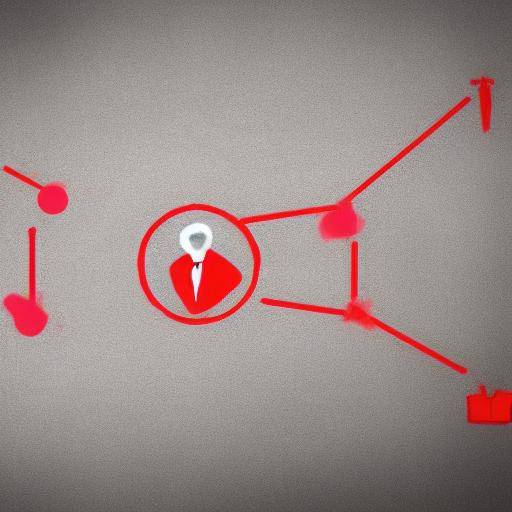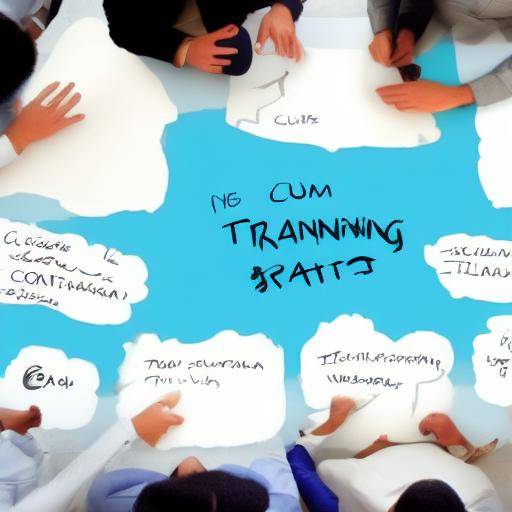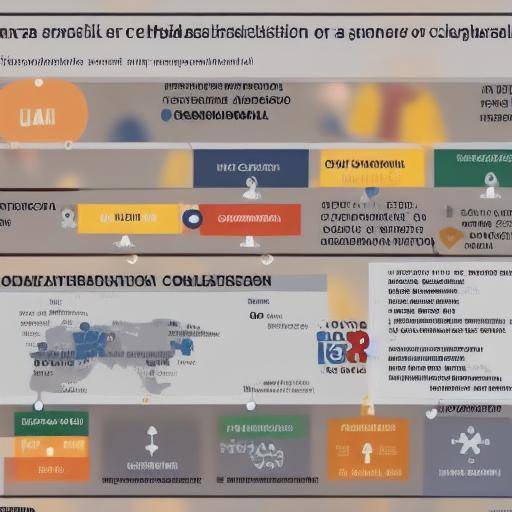
Introduction
Conflict management in the working environment is critical to maintaining a harmonious and productive working environment. Learning to resolve conflicts effectively and creating personal skills to handle tense situations can make the difference between success and failure in an organization. In this article, we will explore in depth the importance of developing conflict management skills at work, as well as practical strategies and advice to effectively address these situations.
History and background
Conflict management has a long history that goes back to the first human interactions. From tribal conflicts to labor disputes, humans have had to deal with disagreements and confrontations throughout history. In the modern era, conflict management has evolved as a discipline, with theories and methodologies that seek to address conflicts constructively and collaboratively.
Conflict management development
The formal conflict management study began to take shape in the twentieth century, with the pioneering research of figures such as Kurt Lewin and Morton Deutsch. Their contributions provided the basis for understanding the dynamics of conflicts and developing approaches to their resolution. As organizations become more complex, the need to address conflicts in a systematic and effective manner is evident, leading to more structured and professional approaches in conflict management.
Important issues
Significant milestones have been achieved over the years in the development of conflict management. The creation of institutions dedicated to conflict resolution, the enactment of laws and regulations related to mediation and reconciliation, and the incorporation of conflict management into educational and business programmes, are examples of how this discipline has gained global relevance and recognition.
Case analysis
Several emblematic cases of conflict resolution, both at the national and international levels, have served as a reference for the study and understanding of effective strategies in conflict management. From peace agreements to labour negotiations, the analysis of these cases offers valuable lessons on the importance of conflict management in building more resilient and equitable societies and organizations.
Deep analysis
Conflict management in the working environment not only involves resolving timely disputes, but also fostering healthy and constructive relationships among team members. An effective approach to conflict management should address both the emotional and practical aspects of the situation, promoting open communication, empathy and seeking collaborative solutions.
Benefits of conflict management
Conflict management at the workplace entails a number of tangible benefits, such as reducing internal tensions, strengthening team cohesion and promoting a more inclusive and equitable working environment. In addition, addressing conflicts in a timely and effective manner may prevent the intensification and conversion of a broader crisis affecting the performance and morals of the team.
Challenges and challenges
While conflict management can be beneficial, it also presents inherent challenges. The lack of effective communication skills, resistance to change or the presence of conflicts rooted in organizational culture can hinder the conflict management process. Recognizing and addressing these challenges is critical for effective and sustainable conflict management strategies.
Current trends
In the current context, conflict management has become even more important because of cultural diversity, globalization and the growing complexity of labour relations. Organizations are adopting more holistic approaches that integrate conflict management into their structures and policies, recognizing the value of diversity of perspectives and proactive resolution of disagreements.
Comprehensive review
Conflict management is not limited to the resolution of timely disputes, but encompasses a set of skills and approaches that can strengthen organizational culture and improve teamwork. Explore in detail the practical applications of conflict management and review best practices in this field can provide valuable insights to address conflicting situations in the working environment.
Differential practices
Various industries and organizations have applied differentiated approaches to conflict management, adapting them to their specific needs and contexts. From early dispute resolution to the implementation of mediation and conciliation programmes, each approach has special implications and can provide useful lessons for other working environments.
Expert opinion
The views of conflict management experts can shed light on new trends and more effective strategies for resolving conflicts in the workplace. Interviews with thought leaders in this field, as well as the collection of relevant studies and analysis, provide an enriching vision of innovative approaches and successful conflict management practices.
Future perspective
Combating future trends in conflict management is critical in preparing the challenges ahead and developing proactive strategies. From the integration of technologies in conflict resolution to the promotion of organizational cultures based on trust and dialogue, the visualization of the future of conflict management allows organizations to prepare for a constantly evolving working environment.
Comparative analysis
Conflict management, conflict resolution and the development of personal skills to handle tense situations are interrelated aspects that require an integrated understanding to address the conflictive dynamics at work in a comprehensive manner. We compare and contrast these approaches allow us to identify synergies and opportunities to strengthen the capacity of individuals and organizations to effectively manage conflicts.
Supplementary approaches
While conflict management and conflict resolution have similar objectives, their approaches and methodologies may differ in key aspects. While conflict management focuses on preventing and mitigating disputes, conflict resolution emphasizes finding concrete solutions to existing conflict situations. The integration of these approaches can provide a broader strategy to address conflicts at work.
Personal skills
The development of personal skills in effective communication, emotional intelligence and problem solving is essential to complement structured approaches to conflict management and resolution. These skills not only enable people to manage conflicts proactively, but also contribute to fostering a collaborative and empathetic working environment, mitigating potential conflicts before they arise.
Accessible practical advice and advice
Much of the success in conflict management lies in people ' s ability to implement effective strategies in everyday situations. The provision of practical advice and practical advice on conflict management provides readers with tangible tools to address conflicting issues in their working environments.
Skills of effective communication
Effective communication is the basis for conflict management. Developing skills to listen actively, expressing clear ideas and empathizing with the perspectives of others are fundamental skills to deal with conflicts constructively. Offering techniques and practical exercises to improve interpersonal communication can be of great value to readers.
Problem-solving techniques
The ability to identify, analyse and address problems is essential in conflict management. Providing readers with a range of techniques and approaches to solving problems, such as root causes analysis, creating synergies and exploring creative solutions, allows them to acquire practical tools to deal with different types of conflicts at work.
Emotional management
The management of emotions, both their own and others, is crucial for conflict management. Providing strategies to regulate emotions, manage stress and keep calm in conflicting situations can make the difference in effective conflict resolution, prevent unnecessary escalation and facilitate a healthier working environment.
Negotiation and Concessions
The ability to negotiate effectively and seek mutually satisfactory solutions is a valuable skill for conflict management. Providing clear guidelines for negotiation, identification of common interests and equitable management of concessions provides readers with practical tools to achieve sustainable agreements in conflict situations.
Industry perspectives and expert reviews
Conflict management is a constantly evolving area, influenced by industry-specific trends and challenges. The incorporation of industry-specific perspectives and expert opinion in the area of conflict management enriches readers with the understanding of effective practices and emerging trends in conflict resolution in various labour contexts.
Interviews with conflict management professionals
Interviewing key professionals in conflict management allows readers to access cutting-edge experiences and knowledge across a broad spectrum of industries and organizations. The views of these experts can shed light on the specific challenges and best practices that are relevant to different working contexts.
Sector Trend Analysis
Each industrial sector presents its own challenges and dynamics in conflict management. Conducting a detailed analysis of new trends and patterns in conflict management in specific sectors, such as health, technology or education, enables readers to understand the effective specificities and strategies applied in their areas of interest.
Industry and future predictions
The exploitation of forecasts and predictions on the future of conflict management in different industries and working environments provides readers with a strategic vision of the changes that occur and opportunities to develop skills and practices in line with future labour market demands.
Conclusions
Conflict management in the working environment is a key aspect for the efficient functioning of organizations and the well-being of employees. The development of conflict management and dispute resolution skills is part of a continuous learning and growth process, which can generate significant benefits both individually and organizationally. By integrating effective strategies, personal skills and a comprehensive understanding of conflict dynamics, it is possible to transform challenges into development and cohesion opportunities.
Frequently asked questions
What are the main strategies for conflict management at work?
Conflict management at work can be addressed through strategies such as open communication, the identification of common interests, the establishment of clear rules and the promotion of an environment of mutual respect. These strategies focus on preventing conflicts and effectively addressing them when they arise.
How does emotional intelligence influence conflict management?
Emotional intelligence plays a crucial role in conflict management, as it allows people to recognize, understand and regulate their own emotions, as well as others, which facilitates the effective handling of conflicting situations. The development of emotional intelligence can improve empathy, collaboration and decision-making in working environments.
How do cultural differences influence conflict management in multicultural teams?
Cultural differences can influence how conflicts are perceived and managed in multicultural teams. Knowing and respecting different cultural perspectives, as well as promoting intercultural communication and adaptability, are essential for effectively managing conflicts in diversified environments.
What is the role of mediation in resolving labour conflicts?
Mediation plays an important role in resolving labour conflicts by providing a neutral platform for conflict parties to express their concerns, explore alternative solutions and reach mutually satisfactory agreements. Mediation promotes the collaboration and autonomy of the parties involved in the search for solutions.
What impact does the unresolved conflict have on the working environment?
Unresolved conflicts may have a negative impact on the working environment, such as reducing employee morals, loss of productivity, increased stress and demotivation. In addition, protracted conflicts can affect interpersonal relationships and team cohesion, which in turn can affect results and the working climate in general.
What are the advantages of implementing a conflict resolution program in a company?
The implementation of a conflict resolution programme in an enterprise can provide important advantages, such as the promotion of a more harmonious working environment, the prevention of escalation of conflicts, the strengthening of interpersonal relationships, the increased involvement of employees in dispute resolution and the reduction of protracted conflicts, which contributes to the efficiency and cohesion of the team.
How does conflict management affect organizational culture?
Effective conflict management can positively influence organizational culture by fostering transparency, open dialogue, trust and collaboration. The promotion of a proactive approach to the conflict and the implementation of structured mechanisms for its resolution can contribute to a more inclusive, dynamic and responsive organizational culture to the diversity of perspectives and opinions.
External resources:
- 5 effective strategies for conflict management at work, Harvard Business Review
- Emotional Intelligence in Conflict Resolution, Psychology Today
- Examples of mediation in labour conflicts, European Union Agency for Fundamental Rights
Conclusion:
In short, conflict management at work is a key element for the good functioning of the organizations and the well-being of employees. The development of conflict management skills, as well as the understanding of effective strategies and approaches to addressing conflict situations, contributes to the creation of more equitable, collaborative and productive working environments. By integrating knowledge, skills and experiences, it is possible to transform conflicts into learning and development opportunities, thereby strengthening the organizational fabric and promoting rewarding and enriching labour relations.




























